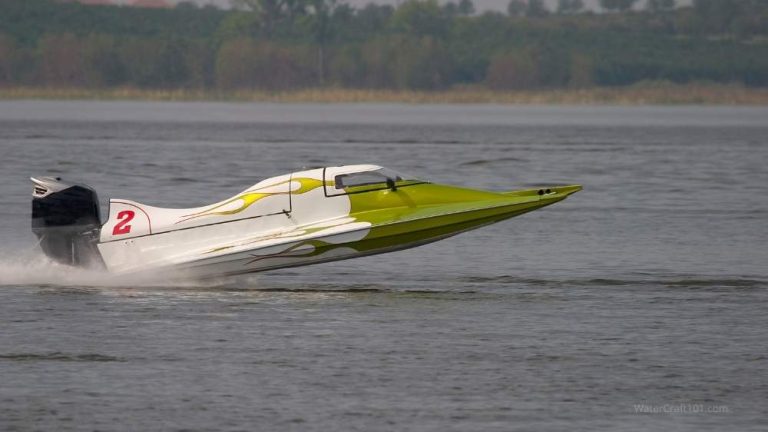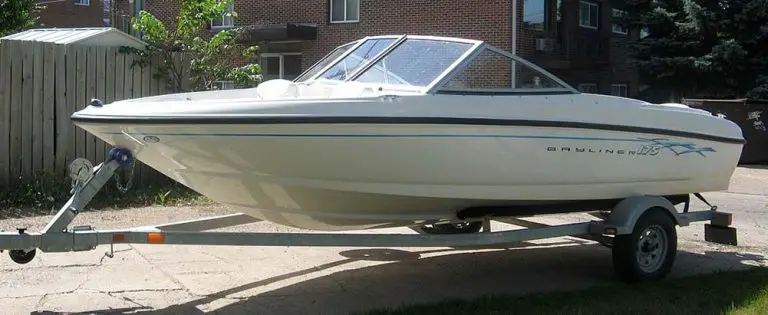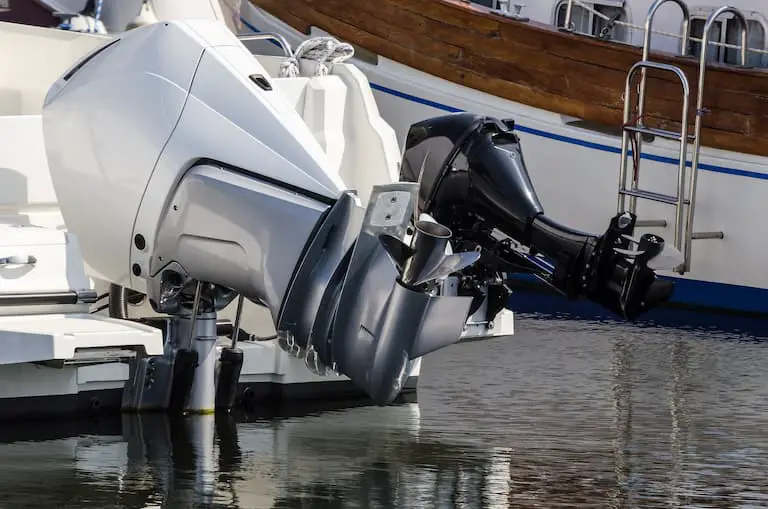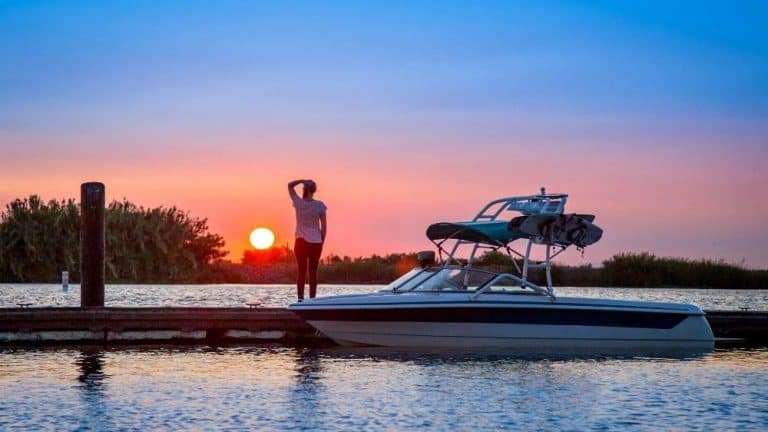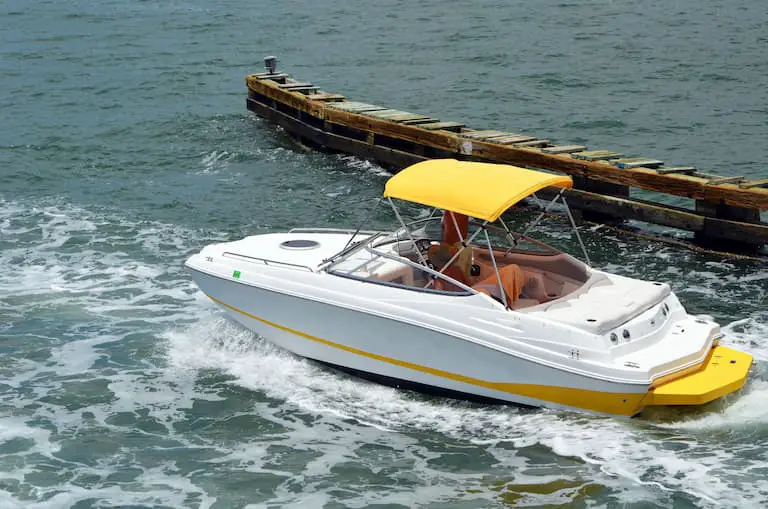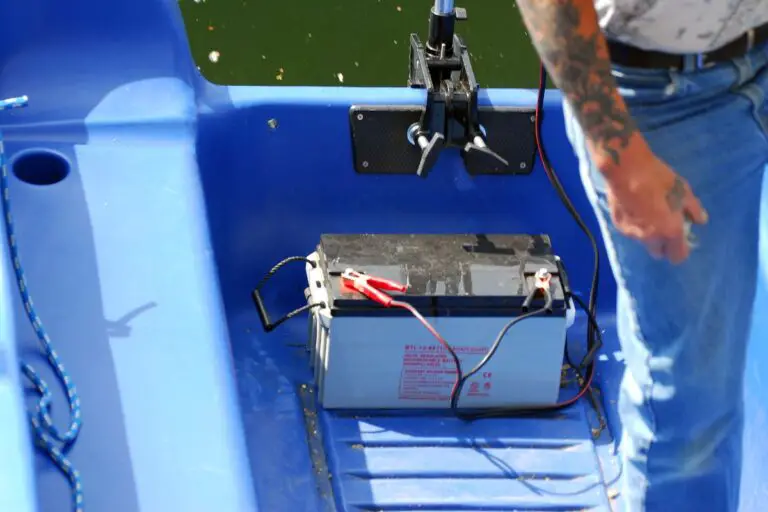Why Boat Propellers Are Made Out of Brass (Revealed)
Boat propellers were invented in the early 19th century and changed the way boats were constructed and functioned. Before this, boats moved mainly via sails or rowing and wheel mechanisms. Boat propellers revolutionized the industry as they could allow ships to move faster and gave captains more control.
Boat propellers are made from brass because brass is strong, durable, and does not have much flex. It is also an affordable choice for its value. However, boat propellers can be constructed from other materials, including aluminum or even wood.
Many powerboat boats use propellers, including deck boats, catamarans, and yachts. In these boats, propellers move the boat through the water. To understand why brass is used to make boat propellers, it is essential to know how boat propellers work and the qualities of brass that make it a suitable material.
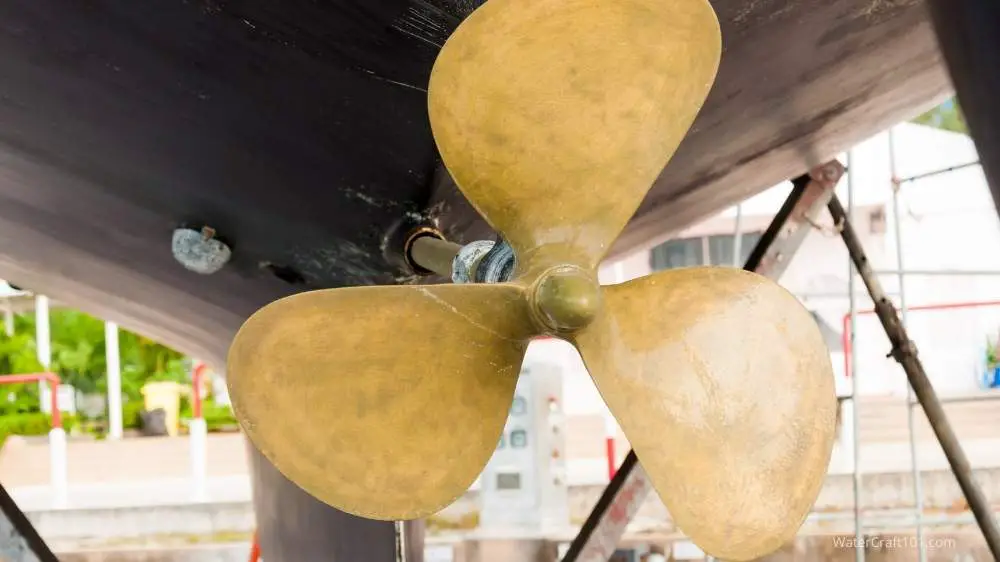
How Do Boat Propellers Work?
Boat propellers consist of angled blades attached to a rotating hub. They are usually placed on the end of a shaft coming off the boat.
Boat propellers work by rotating in a circular fashion when the engine is engaged. Since the blades are angled, they push water outwards away from the boat, creating a lifting effect. As the water is pushed in one direction, the boat moves in the opposite direction.
Propellers can have 3, 4, or 5 blades. Three blades are the most common and often allow for faster speeds. 4 or 5 blades provide more thrust. More blades underwater also mean more surface area, causing less vibration and a smoother cruising experience.
Blades may be right-handed or left-handed, depending on the angle of the blades. Single engines generally use right-handed blades, while left-handed propellers can be used in twin engines for better steering control.
What Is Brass?
Brass is a copper alloy. An alloy is composed of two or more metals. In the case of brass, it is made of copper and zinc in varying ratios. Most types of brass have a higher copper to zinc ratio. Manganese bronze is actually in the brass family since it’s made of 60% copper and 40% zinc.
Traditional bronze is sometimes confused with brass. It is also a copper alloy but has less zinc. It’s usually made predominantly of copper with tin. Since it does not have significant amounts of zinc, it is not as susceptible to dezincification. However, it is generally more expensive.
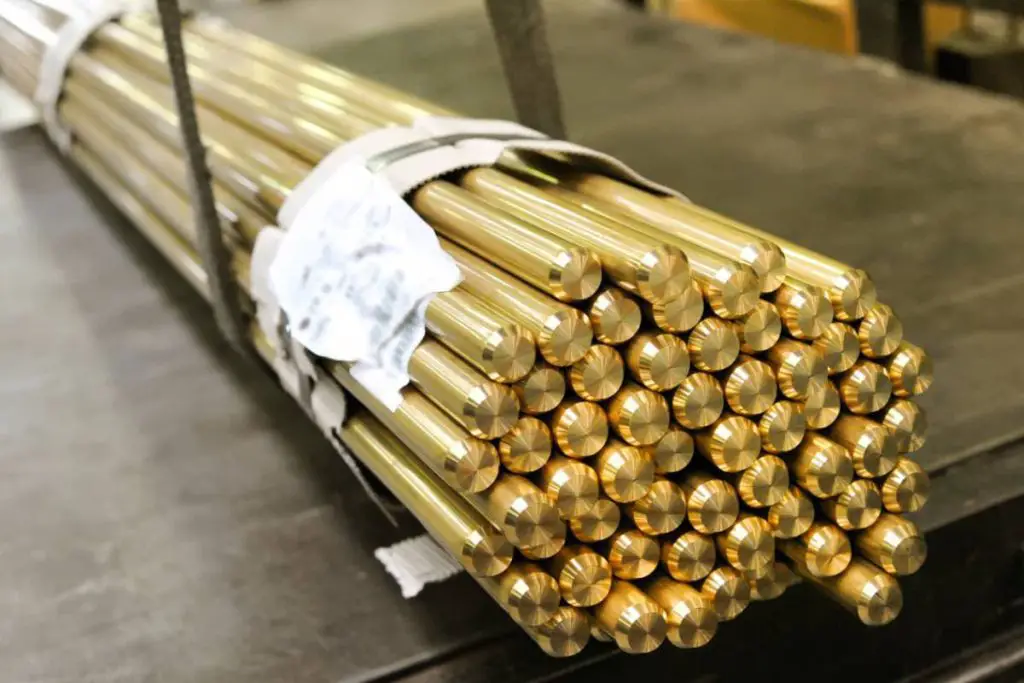
Why Are Boat Propellers Made Out of Brass?
Propellers are necessary to move the boat through the water. This requires a powerful force that puts a lot of pressure on the propellers. Since the propellers of boats are underwater, the material must be able to maintain integrity when exposed to either freshwater or saltwater.
Brass is often used to make boat propellers because it’s strong, durable, and has minimal flex. It is also good value for money and will last a long time. Brass can withstand the effects of being submerged in either freshwater or saltwater.
Brass Propellers Are Strong
Brass is a strong metal. It is capable of withstanding a lot of tension. While it can be stretched and bent slightly, it does not break easily. If one portion of a propeller breaks or chips significantly, the apparatus may not function correctly.
Therefore, strong material such as brass is needed to ensure the functionality of the mechanism.
Brass Propellers Are Durable
Brass is durable mainly due to its high copper content. Biological growth is unlikely on copper because it contains too little iron. As a result, brass propellers don’t easily rust and are less likely to attract marine growth.
The copper present in brass alloy may change in color with exposure to water and air, forming a thin green film. However, this does not impact the functionality of the propeller. Overall, brass is a material that can last a long time without issue.
Since zinc is a component of brass, dezincification is a concern in these propellers. Dezincification occurs when zinc is dissolved over time. The corrosion of the zinc will leave the brass with more porous copper.
However, the high copper to zinc ratio makes brass a safe and durable option for boat propellers. While they may need to be replaced after long-term use, the lifespan is usually sufficient enough not to make it a huge concern for boaters.
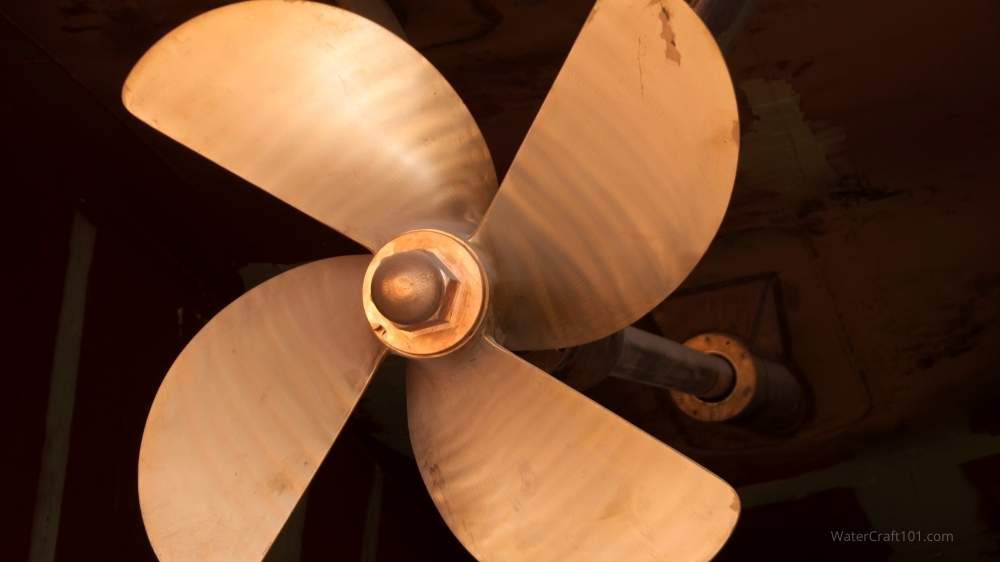
Brass Propellers Have Minimal Flex
As a metal, brass is considered to have minimal flex. This means that it will not significantly bend under pressure. The shape will keep its integrity despite high tension or stress. This is important in boat propellers because the form of the blades is crucial in creating the correct thrust to move the vessel forward.
Brass Propellers Are Less Expensive Than Other Metals
Boat propellers can be made from a few different materials. Stainless steel is highly durable and easily repaired. It can withstand high stress and therefore can be made thinner than some materials. Thinner blades prevent drag, allowing a boat to reach higher speeds. While stainless steel has many benefits, it can be on the expensive side.
Nickel-aluminum-bronze is one of the strongest metals but also more expensive than brass. Aluminum propellers usually stop working when they come into contact with an object. So if you hit something, chances are there will be more damage done to the propeller.
Brass is the least expensive of these commonly used materials. Brass props can be repaired in some situations, but the affordability makes it possible to replace them. Overall, the quality and functionality are high compared to the price, making it a good choice for boat propellers.

Why Boat Propellers Are Made Out of Brass – Conclusion
Metals are solid and durable, making them suitable for boat propellers. There are a variety of different metals and alloys used to make props. The cost-to-value ratio of Brass is reasonable compared to most metals, making it an affordable yet practical choice for boat propellers.
Brass does have some cons. The zinc in brass is predisposed to dezincification, weakening the metal overall. This is more common in polluted waters or saltwater.
However, the pros of using brass boat propellers generally outweigh the cons. The higher copper content makes up for the zinc in many ways. Brass, overall, has the right balance that propellers need to work well.

